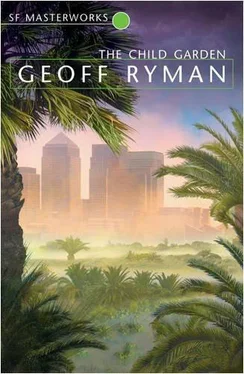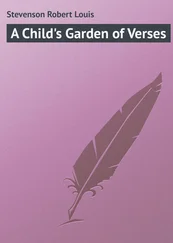And they had sent Rose Ella.
‘And we’ve tried’ said the child bitterly. ‘To help Rose Ella with her work.’
Milena found herself in the lobby of the Medicine.
There were Nurses sitting at a desk. Everything had been swept up or replaced by the children. Everything seemed so smooth and clear. The eyes of the Nurse flitted briefly over Milena. They saw her charcoal hands, the dirty face, the clothes white as it in mourning from the dust of rubble.
‘Ah, good morning, Ms Shibush. Back with us after the storm. That’s good, we have a new work group arranged for you. To prepare you for your Placement. And a nice new room.’
Milena stared at them. Does the room have teeth she wondered, like a shark. Does it bite off fingers as you wander through the ruin of your life, chewing them? Does it grind you with great white molars of rubble? Does your blood ooze underneath the door of this nice, new white room, with the walls that have straps to bolt you down to the bed? ‘I want you to burn me,’ said Milena. ‘I want you to burn everything out of me. I want this burned clear!’ She pressed a finger to her own head. ‘Make me sick,’ she said. ‘Make me ill. Make me as sick with the virus, as much as you can. All of it, all at once, I don’t care if it kills me, just get it inside me.’
And I will be controlled. And I will be neat and clean, and I will keep everything neat and clean, and I will never speak, and I will never show myself again, not to you nor to anyone else.
‘Cure me,’ she demanded.
And she went up to her new room. There was a new bed, as anonymous as her last, and bare walls, and the smell of other room mates. Milena stared at the wall. I hate childhood, she thought. I wish I had never been a child. I want to be old, as old as I can be. Roll on, viruses, roll over me. Come on mathematics, come on Marx and Chao Li Song. Come on logarithms, come all you operas as fixed as the North Star. Come and dance on my head and break it up into rubble. I want to forget.
Milena the would-be adult turned feral. She turned into a hunter. She hunted memory.
No! whispered the adult who was remembering. No! but the voice from the future was too faint.
Milena turned on her self as if with fangs and claws. She pursued her child self through all its hated years in England. She felt the small cool coils and remembered. She had touched such things before and destroyed them. Small cool coils of DNA, DNA that encoded sight and sound, that preserved pain and loneliness and work and waiting.
She sprung memory, as if it were virus. She savaged the coils, rended them apart and let their elements scatter. The memory of her landing in Newhaven on the boat; the death of her mother; the steady learning of the English tongue and the kindly man who had taught it to her; she pounced on them, and ripped them apart in a rage.
She came to the memories of Rose Ella, of home, of the music and the dancing and the book of theatre that Rose Ella’s father had given to her. She held the memories as if in pincers; she felt their weight. She felt them flower in her mind; the sound of the clattering clogs, the lounging in the sun in Russell Square; the row of tiny cannons for firing salutes. She remembered the music of home.
All right, all right, she would let that be. Everything else would be obliterated. The young Restorers on her first day in the Child Gardens; they had gathered around her, calling her Russian out of contempt, damning her with Chao Li Song’s words as she howled for her mother, her mother who was dead. Ah! fond memories of childhood, she thought as she slashed them. Ah my golden years! My bouquet of early life. The years of eating alone; the years of Nurses’ shaking heads. The years of feeling stupid, the years of feeling foreign, the years of silence and dust and the years of her reading as well, all those books, all that work. Milena tore apart her work as well, consigning it to darkness.
No! whispered the future.
The Child Garden was destroyed.
So they made Milena ill again, and this time the viruses won. Milena had no memory of that, either. She remembered how she emerged smaller, neater, pale and wan and very quiet, with a continent of knowledge crammed into her head, along with several useful calculating facilities.
‘Well, you were scheduled for your Reading,’ said the Senior Nurse. ‘But we couldn’t send you because you were so ill. We only gave you educational viruses of course. Personality defects can only be cured by Doctors, and they do that after your Reading. I’m sure there will be a Reading arranged for you soon.’ The Senior Nurse smiled, as if to an equal. Milena was now an adult. ‘We’re very glad that the information finally took. It must be paradise for you.’
‘Oh yes,’ said Milena, her voice dull.
‘And the lack of your Reading seems not to have affected your Placing. Jack Horner, that’s what we’ll have to call you. You’ve pulled a Plum, Ms Shibush. You’ve been Placed as an apprentice at the Zoo — the National Theatre. That’s one of the highest Placings we’ve ever had at the Medicine.’
The Nurse reached forward and shook Milena’s hand. ‘We are all so proud of you, Ms Shibush.’ The fact that Milena did not respond, that the flesh on her face hung dead, and that her mouth was pinched and withdrawn did not surprise the Nurse. She had seen Milena during her illness. She was surprised that Ms Shibush had survived at all.
Like the Tree of Heaven, Rose Ella had done Milena one last great favour before being torn out of her life. Rose Ella had testified on Milena’s Placement board. Moira Almasy had sat on the board as well, as a representative of the Zoo. Milena had been Rose Ella’s special assignment. Years later, Moira Almasy told Milena what Rose Ella had said.
‘It is difficult to see,’ Rose Ella had told the board (she spoke clinically, professionally), ‘in what way someone as crippled as Ms Shibush could usefully be employed, if it is not to work in the theatre.’
So Milena walked out of the Medicine forever, into the newly swept streets, all the old rubble now removed, like her memory. Czechoslovakia lay too far behind her, encoded in a different tongue. Her English years simply no longer existed for her. Her self had been destroyed. It would take six years, until she met Rolfa, before she could rebuild it. She felt dirty. She thought she could feel viruses crawling on her. She wanted to wash.
The sun and the clouds, the new paving stones, and the cabbages squashed on them were all flat and heavy and slow. The viruses whispered like ghosts. They threatened to tell Milena the name of the street, and when it had been built, the names of its architects and statesmen who had slept somewhere along it. Milena walked out of the Medicine, into this unmoving world. She was free, unRead but safely Placed. She had escaped. There was no joy. Now she was an adult, and the world itself had become old.
It was some months later that she learned that Rose Ella’s father, bringing back stone from Cumbria, had been killed by the great storm as well.
A tree had fallen on him.
Years later, amid the trees and flowers of Hyde Park, the Crab Monsters danced.
They pricked their way on the points of their claws and held aloft their huge front pincers. They danced in front of the Forbidden City. The Crab Monsters ruled the world. They were huge and orange and had tiny eyes.
The Monsters were orange because they had been boiled. Thrawn had not been able to imagine crabs, so Milena had bought crabs at the market, cooked them, and scooped them out for puppets. Cooking had changed their colour. The Monsters were dead and empty shells.
Across the grass, the Chinese princesses came crawling on their knees in red and blue silk. They were played by Chinese children, but the hologramming had made them huge as well, so they could be seen. They were giant children, wailing an ancient song, pleading for the world. The pageant was performed for an audience of children who had been allowed to stay up late and for those who had children hidden inside them, who had a world hidden inside them.
Читать дальше












